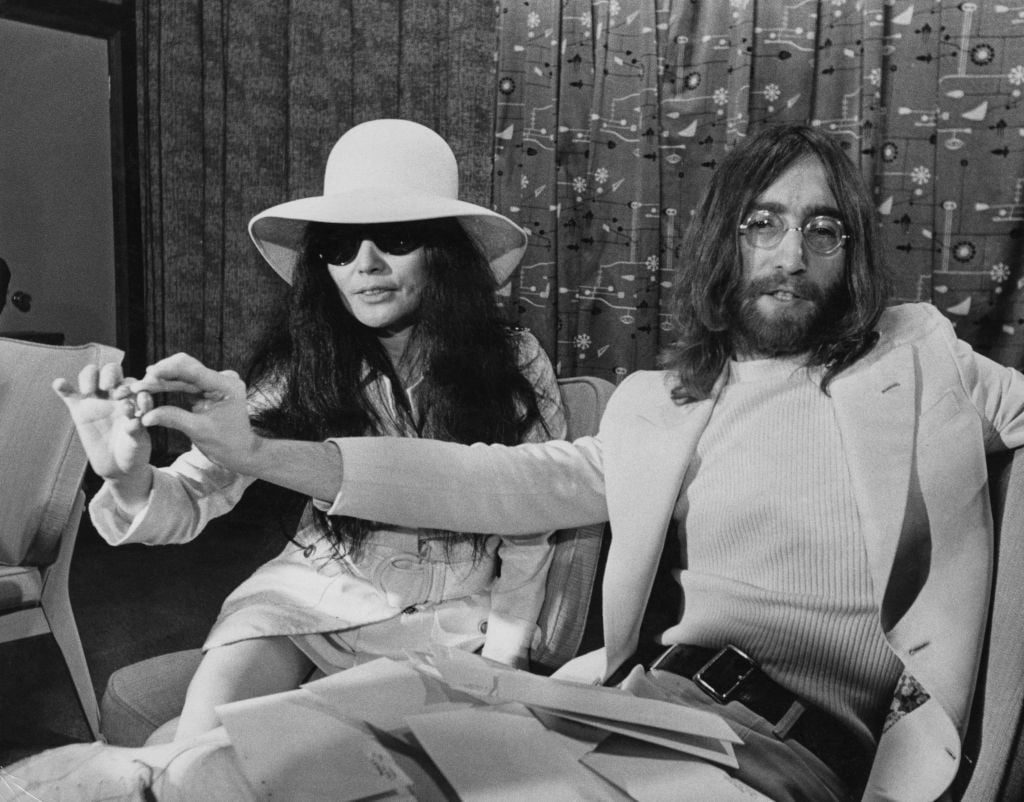
The latest display at Liverpool’s Beatles Museum is the unlikely result of a 55-year-long saga involving John Lennon and Yoko Ono, an aborted peace monument, a drunk driver, and a retired traffic cop who does not care for the Beatles.
The musical duo planted the acorns at Coventry Cathedral in 1968, intending for them to be part of a living sculpture, with a wrought iron bench surrounding the two trees. But in less than a week’s time, the acorns had been dug up and stolen, and a discouraged Lennon gave up on the gesture and removed the bench.
It turns out that a few days after the theft, a young man was busted for drunk driving nearby, and Mike Davies, a traffic sergeant with the Warwickshire Police, retrieved the acorns from him. The offender and his girlfriend, who were in fact Beatles fans, had dug up the acorns and coated them in clear nail varnish in order to preserve them.
“They walked and the acorns were left,” Davies, now 88, told the PA news agency, explaining that the acorns were, legally speaking, worthless and had no owner, so he didn’t bring charges. “It was no good taking them back and replanting them because they were covered in nail varnish so wouldn’t grow.”
Davies simply kept the acorns in his desk until his retirement in 1980, at which time he brought them home in a cardboard box with other personal effects. He had forgotten all about them until he came across them last year.
“They were two seconds off going in the waste bin when I thought, ‘That was John Lennon and Yoko Ono,’” he said.
So, Davies sent them to the Liverpool museum, saying that if they weren’t interested in adding them to the collection, they should just throw them out, as he didn’t care to have them back.
The two acorns that John Lennon and Yoko Ono planted at Coventry Cathederal and were then dug up and stolen, now on display at the Beatles Museum in Matthew Street, Liverpool. Photo by Peter Byrne/PA Images via Getty Images.
The acorns have now gone on display at the museum after an unveiling by Lennon’s sister, Julia Baird.
“John Lennon and Yoko Ono kicked off their whole peace movement with this art installation, where the acorns were planted,” said Roag Best, museum owner and brother to original Beatles drummer Pete Best.
Lennon and Ono’s quest for world peace, which came at the peak of the counterculture movement, was well known, including “bed-ins,” one from their suite at the Amsterdam Hilton Hotel and another from the Queen Elizabeth Hotel in Montreal, and their slogan “War is over! If you want it.” At the Montreal bed-in, they wrote the song “Give Peace a Chance,” which as recorded as a Plastic Ono Band single in 1969 and became an international hit.